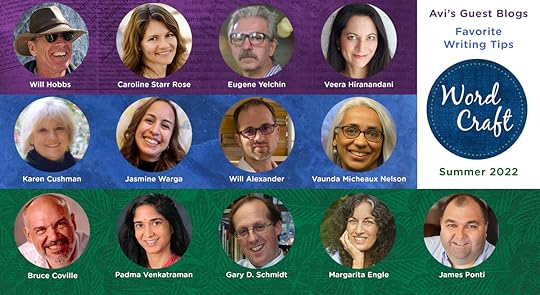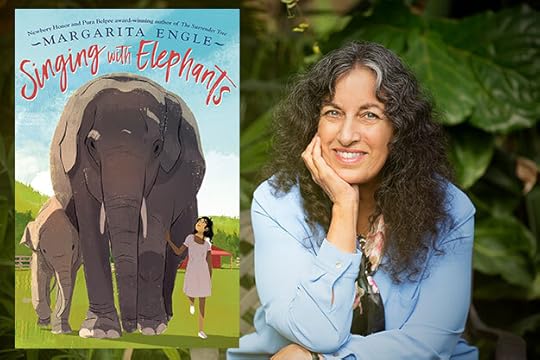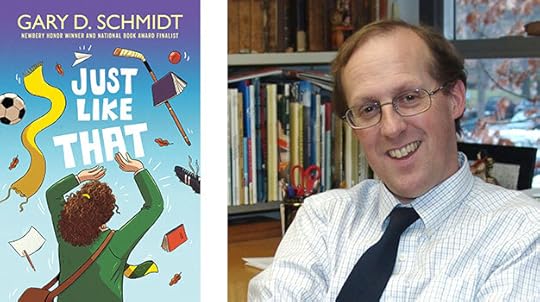Avi's Blog, page 17
September 13, 2022
A Modest Proposal
One would have to be blind not to read about the great upsurge of concern about books that are being deemed inappropriate for various youth audiences. The Authors Guild reports that a library in Michigan has even been closed by local authorities as a way to deal with the problem. Elsewhere, librarians are under attack. Books are being removed from shelves. It’s all rather complicated and overwrought. But there is, let me be so bold as to suggest, a simpler and more direct way to deal with the problem of potentially dangerous books.
We should just stop teaching young people to read.
Consider all the benefits that would bring.
Young people would only learn what their parents knew which would happily make them exact replicas of all their parent’s beliefs, education, and attitudes. Think of it. No clashes of opinions, arguments, or debates. Calm family life.
No English or reading teachers. No librarians. Think how much money would be saved. Lower taxes!
Young people would not learn about and thus not become uncomfortable with other, different people and therefore, in all likelihood, would never leave home.

They would gain an education easily by watching TikTok. No more struggling to get them out of bed in the morning.
By not reading, young people would only experience that which is the immediate parts of their local communities. No more would other cultures, classes, or nations clutter up their vision of the world. They would not even have to bother showing interest (or respect ) for other people, past or present. They would know nothing about them.
Young people would only learn what they are told by older people who will shape them to be just like them. As a result, there would be less confusion about the right way to do, see, and experience things. There would only be one way to see things, the right way. For those of you who have teenagers what a blessing that would be.
Young people would not have to bother about learning dates or about those times in the past when and where things might have been different. That would mean they would never be burdened by learning how peoples, countries, and cultures change. Therefore, they would never seek a change of any kind, but just leave things as they are. They would never learn that people might do good or harm. Politics would become unnecessary. There would be no alternative visions of the world, of faith, or parental guidance. Right would prevail. Elections would be outmoded because there would only be one right way to solve problems.
There would be no confusing reading of fantasy which only brings delusional alternatives of what is deemed reality.
By the end of high school, there would be no need for higher education for young people. Their parents will have taught them everything they need to know. Think of the money that would save!
And surely there could be no reading of the nation’s birth certificate which states:
“We hold these truths to be self-evident, that all men are created equal, that they are endowed by our Creator of certain unalienable Rights, that among these are Life, Liberty and the pursuit of Happiness.”
Stop the teaching of reading and young people will never read that. Oh, then, how much simpler life would be for all.
Nothing would change.
A Modest Proposal
September 6, 2022
There is no one way to write
On my website, these past three months of summer a great variety of my friends and colleagues—successful writers all—have been offering ideas, tips, and suggestions about writing. They have presented ways to think about writing, prepare for writing, and the process of writing itself. What stands out to me is how varied the notions have been. I suspect that ALL of the ideas are valid IF they work for you. That tells me there is no one way to write.
You have to find your own way.

After my second year of high school (it was a very small school) the English teacher called my parents and told them “Avi is the worst student I have ever had.” A tutor was required, found, and followed.
And after having just taken my college Freshman English survey class, I composed a poem in rhymed couplets about some classical Greek theme. (I think it was because I had been introduced to and admired the English poet Alexander Pope-it was he who wrote: “To Err is Humane; to Forgive, Divine.”) I don’t even know which mythic tale I was retelling. In any case, I presented this multi-page poem to my mother as a Christmas present.
She said absolutely nothing about it.
A good number of years later (after I had published a few books) I got up the courage to ask her—“Why did you never comment on that poem?” She said, “Because I thought you copied the good parts from someone and the bad parts, which thought you wrote, were so awful I didn’t want to say anything.”
That in turn reminds me of the advice I once received from an adult mentor after he read a pile of my college-age writings. “Lee,” says I, ”what do you think of my writing?” “Avi,” he replied, “it takes a heap of manure to make a flower grow.”
And when I was a senior at University I entered a student one-act playwriting contest. The judge, while rejecting my efforts, said, “While not a good play, the writer is clearly just learning the English language and is to be commended on making good progress.”
Over the years, my writing did get better.
That “the proof of the pudding is in the eating,” appears to be a proverb that appears to go back to the 14th century. Which is to say—if talking about writing—if you write something well then you did the right thing. However, what you did this time may be different than what you did another time. My point is, how you write, as much as what you write, changes over time.
I once asked my late good friend Natalie Babbitt why she didn’t write more. I’m not quoting exactly but the essence of her answer was: “Everyone says Tuck Everlasting, is such a great book. How could I ever writing anything again as good?”
I thought it was the saddest remark a writer can make.
I always strive to make the next book better than the last. Do I succeed? Readers decide, not me. But I never stop trying.
Since I’m struggling with a new book these days, perhaps I should take Will Alexander’s advice (July 19, 2022) and throw myself a solo dance party before I sit down to write today.
I confess I haven’t tried that. Thanks, Will, and everybody else.
There is no one way to write
August 30, 2022
Writing Tip: James Ponti
I’ve invited a group of top-notch writers to share their writing tips with you this summer. Look for a new bit of learned experience each Tuesday.
James Ponti: Starting a Story
Have you ever been overwhelmed when you start to write something? Worried that it isn’t quite good enough? Worried that it’s not perfect or important? That happens to me all the time, and I’ve had a bunch of books published. (Well, not as many as Avi, but still enough that you’d think I’d be over that feeling by now.) When it happens, I try to stretch.
Just like an athlete stretches their muscles before taking the field, writers can often use a little mental stretch before putting words on a page. Here’s an exercise that can help you stretch your writing muscles. Get 15 index cards (you can use post-its or scraps of paper, but I like index cards so I can use them again later) and put them in three separate piles of five.
On the first five, write a description of a character. On the next five, describe a problem. On the last five, put down a setting. Don’t give much thought to any of these, just write down the first things that come to mind. They can be serious or silly, it doesn’t matter. When you’re done turn them upside down and blindly pull one card from each pile.
You now have the elements for an entirely new and original story. Say, for example, these are the three cards you pulled:
Character – An absent-minded soccer playerProblem – Is late for something importantSetting – in San FranciscoTry to make up a quick story on the spot. You don’t need to write any of it down, just think it through by asking yourself quick questions. How old is the soccer player? Are they late for a game? A practice? Are they running up and down the hills of San Francisco? Do they take a cable car? Do they feel the tremor of an earthquake? How do they solve their problem?
When you’ve figured out a basic storyline, pull out a new set of cards and do the same thing again. Keep doing this until your story muscles feel loose and ready. Then, do the same thing, only this time not with the cards. Use a character, problem, and setting that matter to you and start writing.
It’s game time.

Learn more about James Ponti at his website. Follow James on Facebook, Twitter, and Instagram.
Writing Tip: James Ponti
August 23, 2022
Writing Tip: Margarita Engle
I’ve invited a group of top-notch writers to share their writing tips with you this summer. Look for a new bit of learned experience each Tuesday.
Margarita Engle: Poetry Tips for Tweens
Read a lot of poetry, then scribble just for fun. Don’t expect your first draft to be perfect. Let the beautiful words and musical rhythms flow. You can make corrections later.
Choose a quiet place to write. Return to that place every day at the same time. Use a pen and paper, so the ink will flow directly from your mind to the page.
Experiment with end rhymes, internal rhymes, vowel rhymes, and no rhymes. Experiment with line length, line breaks, open space, and emotions.
Explore. Travel on the page. Time travel. You don’t have to write in your own voice. You can write as a plant, animal, superhero, alien…anything is possible on that page. It belongs to you. It is your refuge. Feel free and safe. No one is judging you. (Teachers, please help me make this true.)

Learn more about Margarita Engle at her website. Follow Margarita on Facebook, Twitter, and Instagram.
(photo credit: Shevaun Williams)
Writing Tip: Margarita Engle
August 16, 2022
Writing Tip: Gary D. Schmidt
I’ve invited a group of top-notch writers to share their writing tips with you this summer. Look for a new bit of learned experience each Tuesday.
Gary D. Schmidt: A Practical Tip
One of the hardest moments comes when you sit down with your computer, typewriter, pencil and yellow pad, or stylus and cuneiform tablet, and begin a story. So here’s a tip: Get your protagonists in trouble right away. Put them in a place where something has happened, or will happen, and they have no choice but to respond. That starts the story off, and that makes the reader want to know what happens next.
So when you’re thinking about that trouble, consider starting far away with your ideas, and then move closer. Here’s what I mean.
(1) Have something happen that is physically very far away from your protagonists, but that will soon affect them. Perhaps two asteroids have just barely touched each other in their journey around the sun, but it’s enough to send the larger of the two directly toward a little town in Montana where your protagonist lives. OR perhaps your protagonist and three of her friends are on a beach along the California coast, while a thousand miles away, out in the Pacific, a tectonic plate slips a little bit and sends a tsunami rushing to the east. OR on the Great Wall of China, your protagonist’s pen pal finds an unusual plant, snips off a leaf, and sends it to your protagonist in upstate New York, not knowing that this leaf contains an ancient DNA that wiped out all the surrounding flora in China ten thousand years ago. Here the suspense lies with the reader trying to make a connection between the faraway event and your protagonist.
(2) Have something happen that instead of being very far away, is very close to your protagonist. That science experiment in Mr. Ferris’ class, it gets completely out of control. The house next door is getting a whole lot of sudden visitors, and under their raincoats, they seem to have tails. Your protagonist’s sister, who was practicing piano downstairs, suddenly stops playing and disappears. That dog that moved in next door can fly. The kid that moved in next door can leap tall buildings at a single bound. In your protagonist’s homeroom, the teacher’s eyes glow. All of these will be close by your protagonists.
(3) Have something happen that your protagonist causes without meaning to. Your protagonist accidentally awakens a ghost that has been dormant for centuries. Your protagonist wins the National Spelling Bee, sending her best friend into a jealous rage. When the protagonist borrows his uncle’s metal detector, he discovers Viking gold—the same gold being sought after by the hidden lord of the Templars. Your protagonist starts a fire with a Bunsen burner, knocks over the snake cage and lets out a cobra, wins a trip to some amazing place with one friend—and she has to choose who to take—or finds out that he carries a deadly disease that he is immune to but which has the potential to sicken thousands.
All we’ve done here is to find trouble far away, or close beside, or within the protagonist—and we know as readers that with all of these, we can expect the protagonist to respond some way to that trouble. And that response begins your plot.

Writing Tip: Gary D. Schmidt
Avi's Blog
- Avi's profile
- 1703 followers



